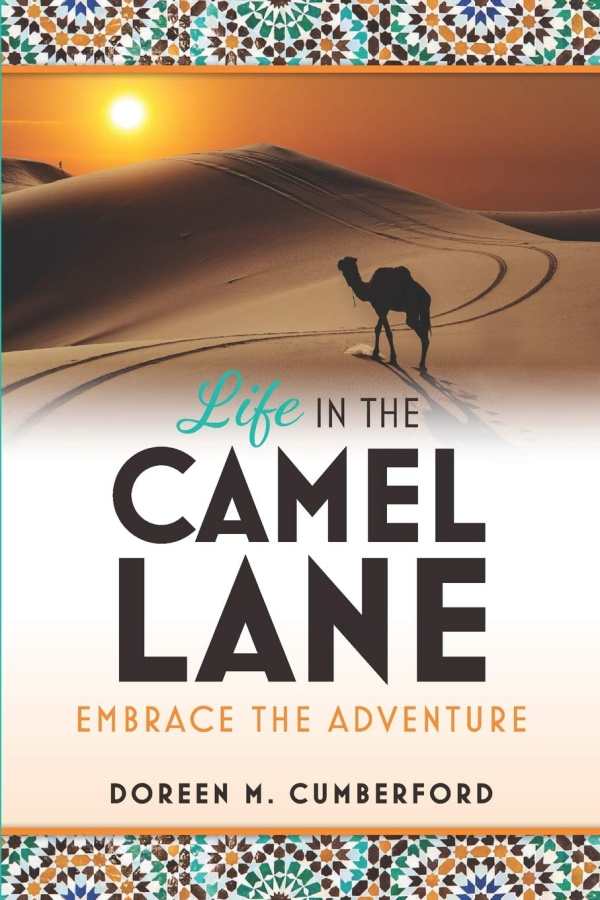Life in the Camel Lane
Embrace the Adventure
Life in the Camel Lane is a collection of personal travel anecdotes with insights into expat life.
Doreen M. Cumberford’s Life in the Camel Lane distills decades worth of Arabian travel anecdotes and expat stories into a mosaic of practical life lessons.
When Cumberford left her Scottish home in the 1970s to work for an oil field contractor in Dubai, it constituted the first step on the international journey that became her life. Inspired by her travels to the United Kingdom, United States, Africa, and Japan, as well as her vast experience in Saudi Arabia, Cumberford’s book collects anecdotes and fashions them into practical advice for intrepid adventurers.
Contrasting cultures and environments are expressed in poetic terms. Before Cumberford arrives in Saudi Arabia, she spends several months in Japan with her husband and young daughter. Japan is later memorialized as a place of “pressed kimonos” and “endless activities of humanity in motion,” while Saudi Arabia is a “deserted golf resort planet” where “long white robes [flicker] in the wind,” resulting in an evocative analogy whereby Arabs “float” and the Japanese “bounce.”
After arriving in Saudi Arabia, Cumberford’s first challenge is her confrontation with the culture’s belief that women should cover their faces and bodies by wearing the abaya. Despite her initial reactions, Cumberford comes to an altogether different perspective: the abaya becomes an opportunity to “discover a sense of freedom” and build a “powerful sense of being from within.”
Stories from other expats add dimension to Cumberford’s questions about cultural differences. When conveying disturbing aspects of Sharia law, Cumberford shares a story from the 1980s, in which a married couple received regular invitations to attend Friday afternoon beheadings and stonings, while another woman recalls a secret, women-only shopping mall where patrons could congregate and shop without an abaya, behind the safety of tinted glass.
Practical advice from Cumberford’s life experience is the book’s forte. When weighing up the opportunity to travel and live abroad, Cumberford attests that life is “portable”—“you can take it with you wherever you go.” When reflecting on belonging—the primary challenge in any expat’s life—she concedes that, while the act of leaving involves loss, it also includes opportunities to seek adventure and forge a new identity.
The absence of context in relation to time and place causes some confusion. An interview with Cumberford’s husband’s company, attended by Cumberford and her infant daughter, is the starting point for the family’s Saudi Arabian adventure, but the scene then shifts to a different work assignment, when their daughter was nine months old. This starting point is not followed up on until later in the book. Awkward sentences also impede the book’s readability while, in a chapter about life on a Saudi compound, an anecdote involving a tent is too late qualified as taking place on a Bedouin settlement, undermining a scene about acquiring knowledge regarding Saudi traditions.
Life in the Camel Lane is a collection of personal travel anecdotes that result in insights into expat life.
Reviewed by
Bianca Bowers
Disclosure: This article is not an endorsement, but a review. The publisher of this book provided free copies of the book and paid a small fee to have their book reviewed by a professional reviewer. Foreword Reviews and Clarion Reviews make no guarantee that the publisher will receive a positive review. Foreword Magazine, Inc. is disclosing this in accordance with the Federal Trade Commission’s 16 CFR, Part 255.

